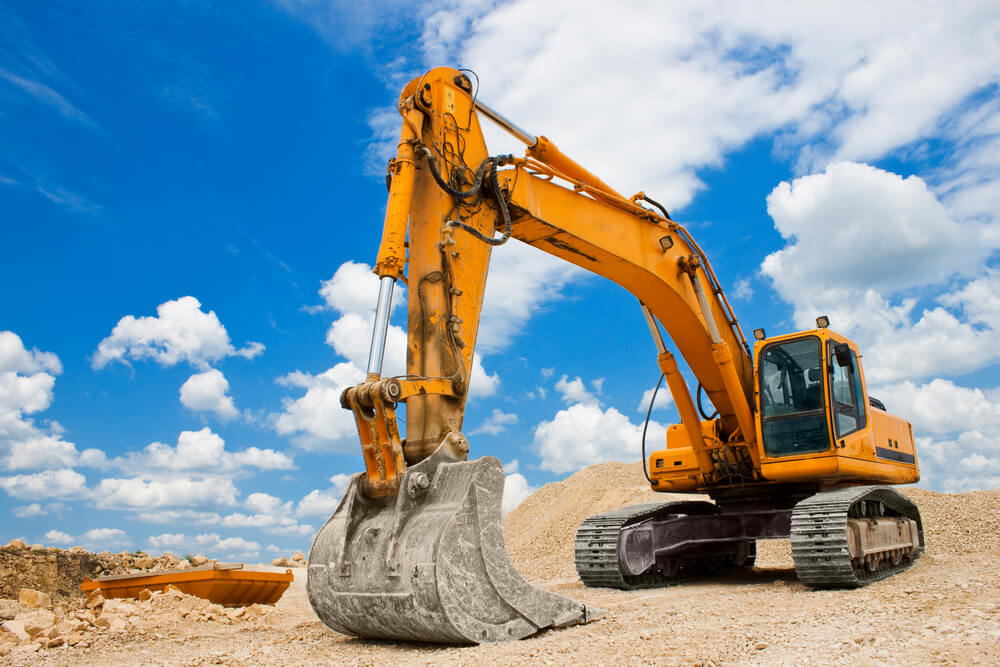 Listen to an audio version of this guide here.
Listen to an audio version of this guide here.
Got questions about heavy equipment financing? We’ve got answers. The following are answers to the internet’s 16 top most frequently asked questions about heavy equipment financing—according to Google results. Feel free to use anchor links for easy navigation.
A typical timeline for the repayment of heavy equipment financing can range anywhere from 3 to 10 years—depending on what you’ve arranged and qualified for. Factors that change this include your lender, heavy equipment type, and credit history.
While some lenders may offer even longer repayment schedules, this largely depends on the borrower’s credit and the overall financial history or situation.
Though a longer plan sounds nicer, keep in mind that your interest rates may end up being higher and the equipment will usually depreciate—not making it worth nearly as much once you finally own it free and clear.
Buying heavy equipment can be an AMAZING investment if it helps your business generate more revenue. If the equipment isn’t being actively put to work, buying equipment may be an expense that doesn’t pay for itself.
And another thing: When deciding to purchase heavy equipment, consider not only the sticker price but also all of the additional costs associated with owning the equipment. These can include fuel, maintenance, insurance, storage, and eventual resale value. To save your bacon, weigh the pros of buying against the cons of owning—making sure the purchase makes financial sense for your business or operation.

The interest rate of an excavator financing plan can vary widely—depending on everything from the borrower’s credit history to the model, payback term, and lender policy. That being said, such heavy equipment loans range between 5% and 20%. Keep in mind that this is just a ballpark figure and it is essential to compare quotes from various lenders.

As we mentioned earlier, heavy equipment financing terms—including tractors and other agricultural equipment—typically run for 3-10 years. This depends on the lender, the terms of the financing plan, and the borrower’s financial history. And while it may seem like a longer term is a more convenient payment schedule, keep in mind that this may end up being much more expensive due to a higher interest rate.
Obtaining a good deal on heavy equipment financing usually depends on the financial history of the borrower—whether an individual or a business. Lenders will usually want to gauge your ability to repay, which may mean needing some business documentation and recent financial statements.
Other contributing factors include the type of equipment, the desired terms, interest rates, and the like. It pays to shop around to find the terms that work best for you. However, if no such options are available, it may be best to reevaluate what you need from a financing plan—or equipment.
If you’d like to make it easier to obtain heavy equipment financing, make sure your business financials are in order—that you have a structured business plan, established budget, and understand what equipment you need. Remove all uncertainty from your business plan. Trying to obtain financing without a precise business plan or understanding of what equipment models you’ll need will make it trickier for a lender to feel good about providing financing.
Your credit score is only one financial metric lenders will look at when considering your business for a loan—but it’s a pretty big one! A general rule of thumb is that lenders prefer borrowers with a credit score of no lower than 650. Once credit scores dip below this level, heavy equipment financing can become much more expensive or even difficult to acquire.
With that being said, some heavy equipment lenders have special programs for borrowers with lower credit scores. These programs and plans may use other financial indicators, specialized terms, or alternate ways to make it easier for businesses to access the financing they need.
In the meantime, if you have a lower credit score, it is important that you take steps to improve it. Start by working to pay down existing loans, paying all bills on time, or analyzing your credit report for errors that may be tanking your score.
To put it simply, heavy equipment leasing means paying monthly for the use of specific forms of heavy equipment—usually a term ranging between two to five years. In most instances, the company leasing the equipment is responsible for maintenance and repairs. When the term is up, you can either return the equipment, extend the term, or buy the heavy equipment for its current value.
But why would you want to lease heavy equipment rather than buy? There are several occasions in which this makes sense.
- Leasing is usually a lower barrier to entry, meaning you may not have to put as much down before you get to use the heavy equipment you need.
- Unlike buying heavy equipment (in most instances), lease payments can be considered business expenses and are thus tax-deductible.
- Leasing heavy equipment makes sense if you need (or want) to have access to the latest technology without having to buy and sell/trade-in models every few years or as the needs of your operation change.
So, what are the downsides of leasing heavy equipment?
- Leasing heavy equipment is usually more expensive than buying the same equipment.
- Leased equipment may have usage restrictions for those leasing them.
- You may need a more expensive insurance plan on the equipment than you would normally if you had owned it yourself—though lenders may have their own insurance requirements.
All of these factors make it necessary to weigh the pros and cons of leasing versus buying equipment for your business.
Yep! You most certainly can use a Small Business Administration (SBA) loan to purchase heavy equipment. In fact, the SBA has a number of loan programs to choose from to obtain the heavy equipment you need—including the SBA 7(a) loan program and the SBA 504 loan program.
The SBA 7(a) loan program provides financing for all sorts of business expenses—including equipment purchases. Loan amounts can range up to $5 million and can be kept up to 25 years for equipment purchases. And yes, the interest rates for SBA 7(a) loans are typically lower than traditional business loans with fixed interest rates.
While all of this sounds pretty amazing, to qualify for an SBA loan, you must meet certain eligibility requirements. You need a high credit score and a fairly detailed, executable business plan. The application process for SBA loans can also take quite a while to process and require a deep dive into your documentation. But, if you’re willing to endure all of this, SBA loans can be a pretty sweet deal for smaller businesses.

Financing heavy equipment or buying it in cash really depends on your financial situation. Do you have the excess cash to buy equipment outright? If you do, it may simply your finances to just to buy the equipment outright. However, there are some reasons why financing your equipment still makes good business sense.
The Benefits of Buying Heavy Equipment in Cash
- By buying equipment in cash, you’ll avoid paying interest on a loan.
- You don’t have to prove creditworthiness or business documentation to a lender when you buy.
- You’ll avoid going into debt down the road over the equipment should something happen.
- Heavy equipment is a depreciating asset as it is, so it makes sense to not pay any more than you have to—savings are definitely helped by buying with cash.
- You likely won’t need to carry as costly insurance coverage on the equipment as if it was financed.
The Downsides of Buying Heavy Equipment in Cash
- Buying with cash can put a huge hole in your liquid assets for other purchases that can’t be financed as easily.
- You’ll miss out on the opportunity to build your credit with consistent payments.
The Benefits of Financing Heavy Equipment
- You won’t have to dip so much into your liquid cash to buy equipment all at once.
- You’ll have the opportunity to build your credit by paying on time.
The Downsides of Financing Heavy Equipment
- You will need to prove your creditworthiness to a lender.
- In addition to paying for the equipment, you will need to pay interest.
- You will likely need to maintain a fairly high amount of insurance coverage on financed equipment.
So, even if you have the cash to buy your heavy equipment outright, it still pays to consider the potential benefits of financing (pun somewhat intended).
When asking what heavy equipment can be financed, it may make more sense to ask, “What heavy equipment can’t be financed?” Why? Well, because most any heavy equipment styles and models are within reach of financing from the right lender, such as…
Construction Equipment
Backhoes, bulldozers, excavators, loaders, skid steers, and trenchers.
Farm Equipment
Tractors, combines, harvesters, irrigation equipment, and planting and seeding machines.
Manufacturing Equipment
CNC machines, injection molding machines, lathes, and presses.
Medical Equipment
Imaging machines, surgical equipment, and diagnostic tools.
Transportation Equipment
Trucks, trailers, buses, and RVs.
Yep—most items of equipment necessary to run a business can be financed. However, the terms of financing plans depend on how the lender’s specialization, policies, and how they consider the creditworthiness of borrowers. For this reason, it is a good idea to research specialized financing companies. These companies have a unique understanding of certain industries, allowing them to more carefully calculate risk. Usually, the more specialized the lender, the better the terms for borrowers—so don’t simply settle for the first quote you receive!
While the wording of this question can be confusing, we believe this person is asking how much of the price of a piece of heavy equipment can be financed.
Typically, the amount of financing one can receive for heavy equipment depends on a variety of factors—the lender’s policies, the borrower’s credit history, the viability of the business, and even the type of equipment.
With all that being said, usually, 100% of the equipment’s value can be financed—including amounts ranging from just a few thousand to millions of dollars—all depending on the borrower’s creditworthiness.
When considering the loan amount, lenders look at the equipment's resale value and the borrower's creditworthiness. They also consider the cash flow and financial history of your business. A high credit score and a robust financial history can certainly up your financing eligibility.
To maximize your financing power, research a number and kinds of lenders, and compare quote interest rates for various terms. Weigh them against what kinds of equipment your business needs to thrive—including which models are best, how many you may need, their working lifespan, and resell value down the road.
The decision to lease or finance your heavy equipment all depends on your plans for your equipment in the future.
Will you be needing heavy equipment that possesses the latest technology? Maybe you’ll only need equipment for specific projects. Or even still, you don’t have a lot of upfront cash for a downpayment on buying equipment. If any of these situations sound familiar, it may make more sense to lease your heavy equipment.
Leasing heavy equipment gives you access to newer equipment with shorter contractual obligations with lower upfront costs. Leasing also means you can deduct the cost of the lease from taxes as a business expense.
Will you need this heavy equipment for many years to come? Are you looking save money overall and even increase the equity of your business? If these scenarios resonate with you, it may make more sense to buy your heavy equipment instead of lease.
By the end of the financing term, buying heavy equipment is usually the more affordable option. This is because you take on more of the risk, you’re responsible for more of the maintenance, and you shoulder the depreciation of the equipment. This being said, buying equipment in cash will put more of a dent in your company’s finances—funds that could be used for other initiatives while you could have been paying down the note on equipment or paying monthly for a lease.
Before buying or leasing any heavy equipment, carefully weigh your options against your company’s goals for the future.
Though there are more than four types of heavy equipment financing, we will look at the four most popular sources.
Specialized Equipment Financing Companies
One of the most popular choices for heavy equipment financing are companies that specialize in financing said equipment. Due to their specialization, they understand the industries, equipment, and risks inherent in this type of financing—making them able to extend highly competitive and flexible financing programs.
Traditional Banks & Credit Unions
Traditional banks and credit unions are frequently great sources of heavy equipment financing. Many businesses will opt to finance their equipment through a bank they may already have accounts—which may help lower rates or extend terms. Credit unions are not-for-profit institutions—allowing them to frequently provide highly competitive rates lower than many other lenders.
Heavy Equipment Manufacturers
To increase sales, many heavy equipment manufacturers may offer financing options for businesses that want to purchase their equipment. Some of these financing options may include low or zero-interest rates, flexible repayment terms, and other incentives to encourage businesses to purchase their equipment.
Government Programs
Many businesses—especially smaller ones— may be eligible for government programs that provide much-needed financing for businesses needing to buy heavy equipment. These plans are typically associated with specialized programs that offer loans or grants to businesses that meet certain criteria—such as being located in a particular geographic area, operating in a specific industry, or being rewarded for maintaining certain environmental or energy efficiency standards.
The sheer number of heavy equipment financing sources means that it pays to think outside of the box when it comes time to look for competitive plans for your business.
So, who gets the financing? The short answer is that the qualification process is ultimately up to whichever lender you choose. For the most part, equipment financing is extended to all sizes of businesses and across industries—pending any red flags.
What kind of red flags would keep you from being eligible for financing? Well, a poor or limited credit history can impact your financing interest rates and programs available to you. Fortunately, because the equipment itself is considered the collateral, this helps you qualify for financing on particular heavy equipment usually even more so than an open-ended cash loan that is trickier to recoup.
Many borrowers can make the terms of their financing contract better but at the expense of a little more skin in the transaction, such as assets and the like. These terms and conditions would depend on the willingness of the lender to shoulder such risk and the borrower’s comfort level with such an arrangement.
So, how is eligibility determined by the lender? Well, by usually looking under the financial hood of the borrowing business—checking credit history, time in operation, cash flow, and even the model of the equipment needed. All of these factors help the lender gauge just how “lendable” the borrower is.
But different lenders have different methods of determining risk and various responses to their findings, so it is important to compare quotes and terms across a variety of lenders when looking for heavy equipment financing.
While there is no documentation requirement list set in stone for those looking to apply for heavy equipment financing, there are a few items to keep handy to make your application process much easier for everyone involved.

Information About the Needed Heavy Equipment
Though there may be somewhat of a “pre-approval” for heavy equipment financing that gives you a ballpark estimate of your financing budget, more lenders want to know the nitty-gritty details about the models of the heavy equipment you intend to purchase and why you need them.
Some of these details may include the make, model, mileage, operating hours, mechanical inspections, insurance quotes or proof of insurance, and records of past ownership. The data needed may vary across lenders.
Information Showing You’re Legitimate
Don’t be surprised if lenders ask you to cough up information such as business licenses, tax ID numbers, articles of incorporation, and even somewhat more personal records of business owners such as driver’s licenses and passports. You’d probably want to know this information as well if you were handing potentially hundreds of thousands of dollars in equipment to a stranger.
Your Financial Statements
Most lenders will not want to finance heavy equipment for a business that is here today and gone tomorrow. For this reason, they’ll want to see your company’s financial statements to feel good about handing you a bunch of money to spend on a dump truck, bulldozer, or harvester.
So, be prepared to fork over cash flow statements, balance sheets, and the like. You’ll also want to put together a business plan so they know your heavy equipment purchase will be profitable (not just so you can hold the most epic tractor pull of all time—unless you can prove the profitability of said tractor pull).
In addition to financial statements and business plans, many lenders will want to see a record of what assets your business currently owns—including land, buildings, and other equipment.
Credit History Reports
Though many lenders will want to run their own credit checks on your business, ask them if you should bring your own credit history checks from verified third parties. This also isn’t a bad idea to do before you begin shopping for financing so you can spot errors on the report that are hurting your credit.
And though it sounds a bit overwhelming, credit checks on business owners and decision-makers will likely be required as well. Just don’t be surprised if it seems like a lender’s documentation requirements get a little personal—it’s just business.
Collateral Documents
Some lenders will require a bit more collateral than just the equipment itself. These may include deeds, assets, and other items of value that allow you to put a little more skin in the contract.
This question is largely irrelevant due to the program in question ending in 2021 but is largely asked across the internet. For this reason, we shall answer it!
The Paycheck Protection Program, or PPP, was a loan program put in place by the Small Business Administration to help businesses weather the storm of the COVID-19 global pandemic. The PPP loans could be used to supplement payroll, pay rent, mortgage interest, utilities, and the like—all expenses to help keep businesses afloat.
Though PPP loans could be used to pay the interest on financed items, they could not be used to buy fixed, owned assets—such as real estate or equipment.
Bonus Question: Where is a good place to begin looking for affordable and flexible heavy equipment financing plans?
We’re so glad you asked!
Whether you need to quickly scale up your business or it's time to replace aging equipment, being able to obtain affordable heavy equipment financing should not hold you back. For this reason, we’re excited to introduce you to LenCo Capital—a My Little Salesman partner company.
So, how does it work?
- Apply for financing in minutes.
- Receive rate quotes in just a few hours.
- Receive your needed financing in as little as one day.
- Partner with a financing company that understands your vision.
You’re invited to learn more about flexible and affordable heavy equipment financing from your friends at LenCo Capital today.